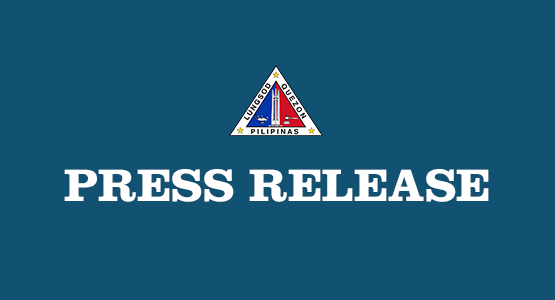
The COVID-19 cases in Quezon City has decreased considerably, since the peak of the surge one month ago.
According to the latest report of the OCTA Research Group, the wave of infections caused by the Delta variant of Covid-19 in Quezon City continues to decline, parallel to the dropping numbers of the National Capital Region.
The average new daily cases decreased by 36% to 506 from 793. This is now half of the peak of the last surge from September 12 to 18, which was 1117 cases.
Quezon City’s reproduction number is now at .64 from .91 last September 28-October 4 while its positivity rate is at 12% from 17% the prior week. The average daily attack rate also decreased to 15.89 per 100,000.
Prof. Guido David of OCTA Research said: “The projections based on current trends indicate that the daily new cases in Quezon City could decrease to 200 by the end of October.”
Likewise, OCTA said that based on the risk assessment on covidactnow.org, Quezon City and NCR are now considered moderate risk.
Mayor Joy Belmonte welcomed this report as proof of the unrelenting and effective efforts of the city government to mitigate the spread of the virus.
“Despite the good news, we are far from relaxed. While we are still focused on vaccination, our testing centers, isolation facilities, and hospitals are still accommodating all confirmed and possible cases,” Mayor Belmonte said.
“As long as we have cases, our services will continue for all affected QCitizens.”
Healthcare utilization in Quezon City is trending downwards as well, and its current level is now at 67%. but intensive care units (ICUs) remain above 70%.
“We anticipate that this rate will also see a decrease soon, as our case numbers continue to plummet,” the mayor said.
QC Epidemiology and Disease Surveillance Unit (QCESU) Head Dr. Rolando Cruz also reminds the public to remain vigilant, follow basic health protocols, and report cases and close contact to the local government.
“We highly encourage our people to continue reporting COVID-19 cases so we can contact trace and isolate contacts. This will help us mitigate the spread and bring the cases down further,” Dr. Cruz said
QCESU can be reached via their official Facebook page and contact tracing hotlines 8703-2759, 8703-4398, 0916-122-8628, 0908-639-8086, and 0931-095-7737.
###







